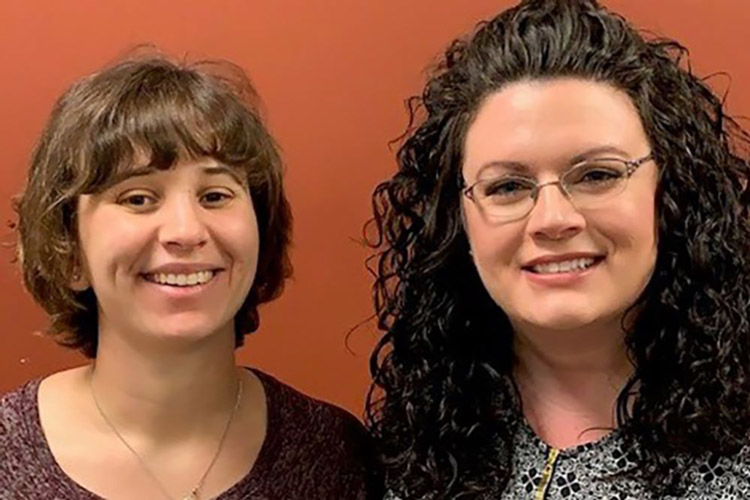Across the country, AbleLight’s Thrift Shops provide a connection to our mission while also offering employment opportunities close to home. One such individual is Amber Long. Amber is in her 20s and has been employed at the store in Crystal Lake, Illinois, for about five years. Amber is a very outgoing person who loves fashion and meeting new people at the store. Originally, Amber worked on the loading dock sorting donations but she had never been given any other training.
Sarah Watson, the store manager, came on board and immediately recognized Amber’s strengths. Sarah gave her extra training that she caught on to very quickly. Since then, she’s learned to price clothing, and continues to express a desire to learn more and help in many other ways. She’s also started taking initiative more frequently instead of waiting for a “to-do” list.
We asked Sarah a few questions from an employer’s perspective on people with disabilities in the workplace.
Q. What should employers consider when interviewing a person with a disability?
A. Employers should consider the following things when interviewing a person with disabilities:
- Altering interview guides and questions as needed, to accommodate the candidate
- Looking at how willing an individual is to learn new tasks
- Considering the training that individual has had in the past
Sometimes individuals with disabilities have never been given the opportunity to receive more training, and all it takes is taking a chance. Also, it helps to be able to easily identify a person’s strengths and areas where they can grow through training.
Q. What kind of training did you need to do? What made it effective?
A. Amber’s training was very hands on. I demonstrated a task as many times as she needed (which wasn’t many), gave her tools to complete the task immediately after watching me, and when she mastered it, we moved on to the next task. Amber was also given visual aids to refer to, just in case she forgot a procedure. She caught on very quickly, but I still did some coaching in the moment to fine tune her skills. Then, I followed up with her weekly to see how her new responsibilities were going. It was a pretty smooth transition really. I think her willingness to learn and eagerness to accomplish goals made it effective.
Q. Do customers notice, or care, if a business employs a person with a disability? Can it be a benefit?
A. Customers do seem to notice our employees with disabilities. It has a very positive effect on them. For our organization, it allows our supporters to see firsthand how we LIVE our mission every day. I think it makes people feel good about supporting us when they can witness the opportunities we’ve given to people with disabilities. It spreads awareness about our mission. My employees who have disabilities are some of the most eager and independent workers I’ve ever had. Their gratefulness for the opportunity really shows in their work.
Employers, learn more: This free guide lays out the facts about hiring people with disabilities and provides the resources to help employers take the first step toward hiring people them.

